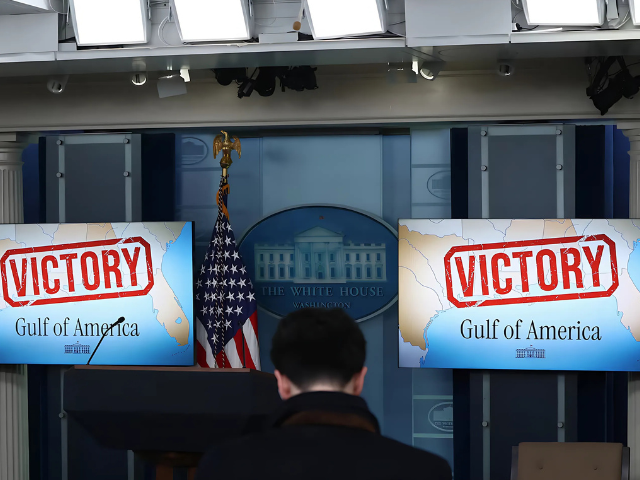
Judge denies AP’s request to restore White House access after Gulf term row |
A federal judge denied an emergency motion filed by the Associated Press (AP) seeking the immediate restoration of its reporters’ and photographers’ access to White House events. The decision delays any ruling until further legal arguments are presented in a subsequent hearing.
The AP filed a lawsuit last week against three senior Trump administration officials—White House Chief of Staff Susie Wiles, Deputy Chief of Staff Taylor Budowich, and Press Secretary Karoline Leavitt—alleging that the administration had unconstitutionally revoked its access in retaliation for the news agency’s refusal to adopt the term “Gulf of America” instead of the Gulf of Mexico.
The terminology change was mandated under a January executive order signed by President Donald Trump.
Legal Arguments and Court Proceedings
Presiding over the case, Judge Trevor McFadden, a Trump appointee, stated that an expedited briefing schedule was necessary and that additional legal filings would be required before he could rule on the matter.
During the hearing, AP attorney Charles Tobin argued that the ban had severely hindered the agency’s ability to cover the administration and damaged its credibility with subscribers. He sought full restoration of the AP’s participation in the White House press pool, including access to travel with the president—a standard privilege historically granted to the news organization.
However, government lawyers representing the administration defended the move, asserting that access to presidential events is at the discretion of the White House.
“The content of a journalist’s speech can be considered when deciding access,” an attorney for the administration stated, adding that President Trump holds the right to block any media outlet from attending White House briefings.
White House Stance
In a court filing, Chief of Staff Susie Wiles contended that the revocation of AP’s access did not amount to a total ban but was instead a decision to restrict its “special access” to the president.
“Losing special media access to the President is a discretionary presidential choice that infringes no constitutional right,” Wiles argued.
Following the hearing, the White House released a statement, reiterating that entry into the Oval Office and travel aboard Air Force One are privileges, not legal entitlements.
Next Hearing Scheduled
The court has scheduled the next hearing for March 20, where both parties will argue the AP’s motion for a preliminary injunction.


